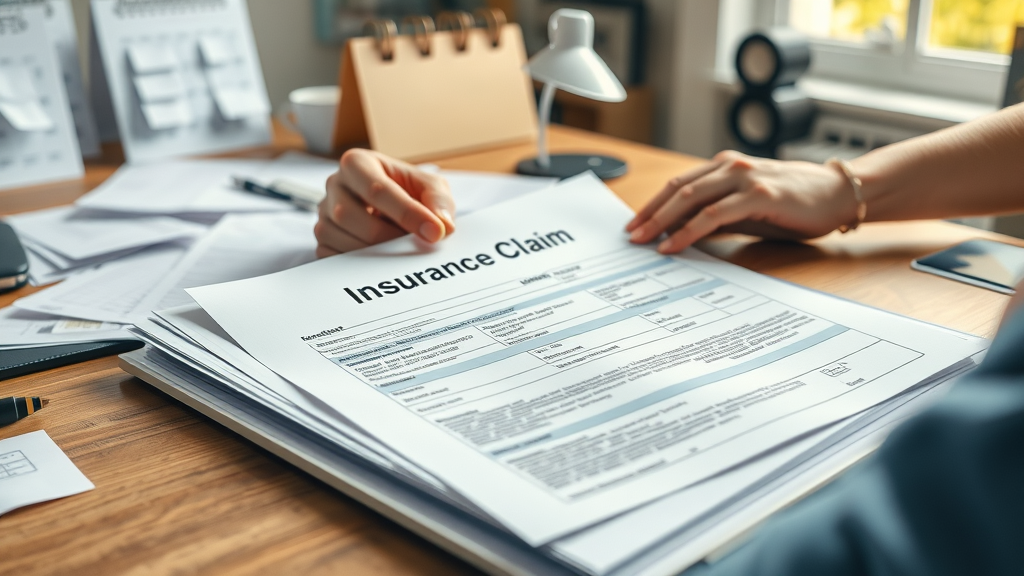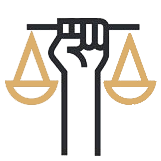Did you know? Fewer than 30% of claimants receive a settlement that fully covers their total losses without professional help. This eye-opening fact highlights how essential it is to truly understand the process of maximizing insurance claim settlements. If you want the compensation you deserve —without leaving money on the table—read on for secrets insurance companies would prefer you never discover.
Unveiling the Truth: The Real Numbers Behind Maximizing Insurance Claim Settlements
Did you know that less than 30% of claimants receive a settlement that covers their total losses without expert guidance? Discover what the majority overlook when maximizing insurance claim settlements.
The journey to maximizing insurance claim settlements often starts with understanding the sobering facts. Most policyholders underestimate how difficult it is to secure a fair settlement without the right knowledge and tactics. Insurance companies operate on complex algorithms and internal procedures designed to limit payouts. That’s why statistically, only a small fraction of claimants walk away with a settlement amount that truly covers all their medical bills, lost wages, property damage, and pain and suffering.
It’s easy to accept the initial settlement offer from an insurance adjuster, especially if you’re dealing with stress after a personal injury or car accident. However, rushing this process means you could miss out on thousands of dollars owed to you. Knowing how insurance companies calculate offers and what documentation they require is the vital first step in maximizing insurance claim settlements. By learning the facts and uncovering hidden tactics, you have a stronger chance to get the fair compensation you deserve.
| Claim Type | Average Settlement | High-End Range | Low-End Range |
|---|---|---|---|
| Car Accident | $20,000 | $100,000+ | $3,000 |
| Personal Injury | $15,000 | $75,000+ | $2,500 |
| Property Damage | $10,000 | $50,000+ | $1,000 |
| Slip and Fall | $30,000 | $90,000+ | $5,000 |

Why Maximizing Insurance Claim Settlements Matters for Insurance Claim Success
Securing the highest possible settlement is not just about money—it’s about restoring your peace of mind and protecting your future. When you maximize your insurance claim settlement, you ensure every aspect of your personal injury , property damage, or car accident is fully accounted for. This includes current medical expenses, projected future treatments, lost wages, and even emotional distress. Maximizing your settlement protects your financial stability post-accident, ensuring you aren’t burdened by unforeseen costs down the road.
Insurance companies naturally prioritize their profits and may seek to minimize the settlement amount offered. That’s why it’s crucial to be proactive throughout the claim process . Comprehensive documentation, strong communication, and an understanding of how adjusters operate can dramatically increase your chances of receiving fair compensation. By focusing on maximizing insurance claim settlements, you improve your odds of getting the outcome you truly deserve.
Understanding the Insurance Claim Process and Its Impact on Your Settlement
The typical insurance claim process can be overwhelming, especially when you’re recovering from a personal injury or car accident. It’s important to understand each phase—starting from filing your claim, submitting documentation, to negotiating with insurance adjusters and accepting a final settlement offer. Each decision and piece of evidence you provide can significantly affect your settlement amount.
Timing and thoroughness are critical. Missing deadlines or providing incomplete information can result in denials or reduced offers. The more organized and prompt you are, the less likely insurance companies are to exploit loopholes or stall your payment. Mastering this process ensures you’re always in the strongest position to negotiate—and never settle for less than you deserve.
How Insurance Companies Calculate Settlement Offer Amounts
Insurance companies rely on fixed formulas and past claim data when calculating settlement offers. They’ll routinely add up your medical bills, anticipated future medical expenses, receipts for property damage, and lost wages, multiplying these numbers based on the severity of your injuries. However, these calculations often underestimate the intangible losses such as pain, suffering, and emotional distress. Knowing how these factors play into your settlement offer allows you to effectively challenge a lowball offer from the insurance adjuster.
Understanding their methods enables you to present counter-evidence and negotiate a higher settlement. For example, you might present expert testimony or use local law firm data to show higher settlement precedents for similar injuries. By proactively building a detailed claim, you ensure you receive the maximum compensation rather than relying on the insurance company’s first calculation.

The Key Steps in the Claims Process for Maximizing Insurance Claim Settlements
There are several critical steps you must follow in the claims process to fully maximize your insurance claim settlement. Each step is a building block—if one is missed or handled carelessly, your chances of receiving the maximum compensation decrease. Organization is key: keep a running record of all communications, deadlines, and documentation to stay ahead of the insurance company and adjusters.
Start by reporting your claim as quickly as possible and gathering strong evidence. Document everything from the scene of a car accident to doctor’s visits and repair invoices. Submit all required paperwork within the specified deadlines, as overlooking even one document can delay—or drastically lower—your payout. An experienced injury attorney or personal injury lawyer can help you avoid costly mistakes at every turn, especially when the stakes are high.
Filing an Insurance Claim: Documentation and Deadlines
When filing an insurance claim , documentation is your greatest weapon. Gather all police reports, medical records, billing statements, receipts, and repair estimates. Calendar all important deadlines set by your insurance policy and state law. Missed deadlines almost always result in denied claims or reduced settlements, even if your injury claim is legitimate.
Stay in contact with your insurance adjuster but never rush your communications. Every phone call and written exchange should be documented—save emails and keep a conversation log for reference during negotiations or if you decide to consult a law firm. Remember, insurance companies are counting on you to overlook small details. Proactive, thorough record-keeping significantly boosts your settlement amount.
Personal Injury and Car Accident Claims: Special Considerations for Settlement
Personal injury and car accident claims require you to provide comprehensive evidence of both injuries and property damage. Unlike average insurance claims, these are often contested by insurers who may argue your medical treatment was excessive or unrelated, or that your property damage is exaggerated. Photographs from the scene, expert medical records, and clear documentation of lost wages build a watertight case for maximum compensation.
The law rewards detailed and timely claims. Even if your injury claim seems straightforward, consult with a personal injury lawyer or attorney for guidance. These professionals excel at uncovering hidden damages, leveraging legal strategy, and responding to insurance adjusters’ tactics to ensure you receive the compensation you deserve.

Top Strategies for Dealing with Insurance Companies and Adjusters
Dealing with insurance companies and adjusters requires a strategic approach. These professionals are skilled negotiators focused on preserving their company’s bottom line—not necessarily ensuring you receive fair compensation. To level the playing field, prepare extensively: know the details of your insurance policy, your rights, and the true value of your claim before negotiating.
Never accept the first settlement offer unless it clearly meets all your needs and covers the full scope of your damages. Treat your conversations with insurance adjusters as business transactions, not personal appeals. Professionalism, persistence, and documentation put you in a stronger bargaining position for a fair settlement.
Effective Communication Tips with Insurance Adjusters
When speaking with an insurance adjuster, clarity and consistency are vital. Always communicate in writing when possible, and never speculate or embellish your injuries or damage. Provide only factual, documented information. Take notes during every call and clarify next steps at the end of each conversation.
Avoid making admissions that can be twisted against you, such as confessing fault or stating you’re “feeling better” before your medical treatment is complete. If an adjuster tries to rush or pressure you, politely insist on time to review all offers and consult with a personal injury attorney or law firm. Your diligence will demonstrate that you’re well-informed and not easily persuaded into accepting less than you deserve.
Negotiating with Insurance Companies for a Fair Settlement
Negotiating for a fair settlement often involves counteroffers, written justifications, and, at times, expert assessments or legal representation. Begin negotiations by quantifying your losses with detailed receipts and a clear timeline of events. Break down your claim into categories: medical bills , property damage, lost wages, pain and suffering, and any future medical expenses.
If your initial offer is too low or feels like a ball offer, respond with a detailed counteroffer and supporting evidence. Highlight case law or historical settlement data when appropriate—this shows you’re serious and informed. Remember, persistence typically leads to a higher settlement amount, especially when the adjuster recognizes your resolve and understanding of personal injury law.

Evidence That Maximizes Insurance Claim Settlements: Medical Records and Beyond
Evidence is the backbone of your insurance claim. The more thorough and credible your documentation, the harder it is for insurance adjusters to deny your claim or reduce your settlement amount . Compile medical records, photographs, repair estimates, witness statements, and expert opinions. Organize these materials chronologically and reference each document in your claim submission.
Keep in mind: simply stating you have suffered losses is not enough to ensure you receive fair compensation. Solid, irrefutable proof is the key to getting the insurance company to move toward your number, not theirs.
-
Critical Documentation Checklist for Your Insurance Claims:
- Accident reports and police records
- All relevant medical records and bills
- Receipts for property repairs or replacements
- Photographs of injuries, damage, and accident scene
- Lost wages verification from employer
- Written statements from witnesses
- Documentation of future projected medical expenses
- All correspondence with the insurance company or law firm
Medical Records as Key Evidence in Personal Injury and Car Accident Claims
Medical records are the cornerstone of any personal injury or car accident claim. They objectively verify the severity and nature of your injuries, connect those injuries to the incident, and provide proof of all prescribed treatments. Insurance adjusters and company lawyers scrutinize these documents for inconsistencies, so thorough, organized, and continuous medical records bolster your claim’s credibility.
Maximizing insurance claim settlements means not only having the right documentation, but also ensuring every doctor visit, treatment, and follow-up is well recorded. Don’t leave gaps that could cast doubt on the validity of your claim. The stronger your medical evidence, the less room insurance companies have to lowball your settlement offer.

Property Damage and Injury Proof: Maximizing the Value of Your Settlement Amount
Besides medical records, detailed evidence of property damage can significantly boost your settlement amount . This includes mechanical reports, home repair bills, and photos taken immediately after the accident. The combination of photographic evidence and expert estimates leaves little room for dispute by your insurer.
In the claims process , well-organized documentation of lost wages and injury-related expenses can further increase the settlement offer . Always use reputable professionals when compiling repair or replacement estimates for property damage. Remember, the more objective proof you have, the higher your chances of receiving the full compensation you deserve.
The Role of Injury Law, Injury Lawyers, and Attorneys in Maximizing Insurance Claim Settlements
The legal landscape of personal injury law and maximizing insurance claim settlements is complex and constantly evolving. Navigating it alone, especially after a serious car accident or catastrophic injury, can leave you at a significant disadvantage. Injury lawyers and attorneys are experts in negotiating with insurance companies, interpreting policy language, and understanding which legal strategies win higher settlements. Engaging their services, even for a consultation, can be the difference between settling for less and achieving maximum compensation.
Personal injury lawyers often work on a contingency fee basis—they get paid only if you win your case or settlement. This motivates them to fight aggressively for your interests and prevent insurance companies from using common loopholes or delay tactics to wear you down.
When to Hire a Personal Injury Lawyer to Navigate the Claim Process
Timing is crucial. In serious car accidents, disputed liability cases, or when injuries require ongoing medical care, hire a personal injury lawyer as soon as possible. Experienced attorneys know how to document your injury claim, communicate professionally with insurance companies , and negotiate settlements that include future medical bills and lost wages. Don’t wait until you hit a roadblock; early involvement ensures the best possible outcome through the claims process .
If your settlement offer feels inadequate and negotiations stall, a law firm’s involvement signals to the insurance company that you’re prepared to escalate your claim—and possibly pursue legal action if necessary. This typically leads to more reasonable offers and better results for clients.
How Injury Attorneys Boost Your Settlement Offer and Fair Settlement Outcome
An injury attorney brings experience and expertise to the negotiation table. They present your case using persuasive legal precedents, contradictory evidence to insurer arguments, and expert testimony where needed. With a personal injury attorney advocating for you, insurance companies recognize that lowball tactics are less likely to succeed, often resulting in a higher settlement offer and swifter resolution.
Experienced attorneys understand the nuances of personal injury law and continuously advise you on the best course of action, ensuring no critical detail is overlooked. Their guidance puts you in the best possible position to receive fair compensation for your injury claim, lost wages, and property damage.

Common Mistakes to Avoid When Maximizing Insurance Claim Settlements
Even a well-prepared claim can fall short if you make critical errors along the way. Recognizing and avoiding common mistakes drastically improves your odds of maximizing your insurance claim settlements . First, never provide a recorded statement to an insurance adjuster without legal counsel—it’s easy to say something that could be misconstrued or used to devalue your claim.
Additionally, avoid accepting early settlement offers, as these are often insufficient, especially before the full scope of your medical treatment is known. Mistakes in documentation, incomplete evidence, or missed deadlines can be just as costly. Consulting an experienced personal injury lawyer is a proactive step to ensure you navigate the claims process effectively from start to finish.
-
Top 5 Mistakes That Hurt Your Insurance Claims and Settlement Amount:
- Accepting the first settlement offer without negotiation
- Failing to document all injuries, property damage, and expenses
- Making damaging admissions or statements to the insurance company
- Missing claims process deadlines or incomplete submissions
- Not consulting a personal injury attorney when the stakes are high
How to Respond to a Settlement Offer and Negotiate for More
The first settlement offer is rarely the best one. When you receive an offer from the insurance company, review it carefully. Compare every line to your documented losses and consider future medical expenses or lost wages not included. If you find the offer insufficient, prepare a written counteroffer supported by your records, expert evaluations, and references to similar settlements from other law firms.
Don’t let the pressure from an insurance adjuster rush you. Delay tactics or time-limited offers benefit the insurer, not you. Be patient, detailed, and persistent—successful negotiations can substantially increase your final settlement amount, ensuring you receive the compensation you deserve.
Counteroffering: Steps to Increase Your Insurance Settlement
Here are the key steps for an effective counteroffer: First, clarify—preferably in writing—all reasons the current offer is not enough. Use your documentation checklist to highlight expenses and losses that the offer ignores or undervalues. Next, edit a concise letter or email that demonstrates why your settlement amount is appropriate, referencing supporting evidence and any relevant legal precedents.
Finally, be prepared for back-and-forth communication, which may include incremental increases from the insurer. Persistence and preparation lead to stronger settlements—don’t settle until all damages are addressed or until you’ve received clear advice from a personal injury attorney or law firm.

Special Tactics for Maximizing Insurance Claim Settlements in Car Accident and Personal Injury Claims
Car accident and personal injury claims offer unique opportunities for boosting your settlement—if you know the tactics. Always seek prompt medical treatment, even if your injuries seem minor; delayed treatment can be used by insurance companies to question the seriousness of your injuries. Enlist the support of witnesses and experts wherever possible and avoid discussing your claim on social media, as public statements can be used against you during the claims process.
Regularly follow up with your insurance adjuster, restating your interest in a fair settlement and asking what evidence could further support your claim. By maintaining a proactive, assertive approach and leveraging legal and medical experts, you increase your overall chances of achieving the highest settlement amount possible.
-
Advanced Techniques for Dealing With Insurance Adjusters:
- Ask clarifying questions to determine the reasoning behind every offer
- Reference similar case settlements as benchmarks in negotiations
- Request written justifications for low offers or denials
- Enlist a professional appraisal for disputed property damage
- Maintain a written log of all interactions for future reference
Frequently Asked Questions about Maximizing Insurance Claim Settlements
How to get the most out of an insurance settlement?
Getting the most out of an insurance settlement requires thorough documentation, knowledgeable negotiation, and often, legal support. Carefully record every medical expense, lost wage, and property damage related to your claim. Present this evidence clearly to your insurer, and always question low offers, presenting counteroffers when necessary. Consulting an injury lawyer greatly improves your chances of receiving full and fair compensation.
Best strategies for maximizing insurance claim settlements explained for claimants.
The best strategies include documenting every aspect of your accident and related losses, understanding the insurance company’s settlement calculation methods, and not accepting initial offers. Counter every lowball offer with evidence-based responses, and avoid making statements that could reduce your claim value. When necessary, engage a law firm or personal injury attorney to take negotiations to the next level.
What not to say to an insurance claim adjuster?
Avoid admitting fault, downplaying your injuries, or speculating about your recovery to the adjuster. Never agree to a recorded statement without advice from an attorney, and refrain from offering more information than what’s documented. These missteps can reduce your settlement amount or lead to denial of your claim altogether.
Key phrases and admissions that can reduce your settlement amount.
Statements like “I’m feeling better now,” or “I think it was my fault,” can be exploited by insurance companies. Never say you’re unsure about the accident details or sign any documents before thoroughly reviewing them with legal counsel. These admissions can be interpreted as liability acceptance or as an indication that your injuries are less serious, resulting in lower compensation.
How do I ask for more money in an insurance settlement?
Prepare a detailed counteroffer that includes all supporting documentation for your losses. Clearly itemize additional expenses, anticipated future costs, and provide comparable case outcomes if possible. Express your willingness to escalate to legal proceedings if a fair offer is not made. This signals to the insurer that you’re serious about securing a fair settlement.
Insider advice on requesting a higher settlement offer with supporting documentation.
When requesting a higher settlement, refer to specific medical bills, property damage invoices, and a log of missed workdays. Include physicians’ statements about ongoing care and recovery timeframes. The more concrete your documentation, the more difficult it is for the insurance adjuster to refute your demands for a greater settlement amount.
How to get the most money out of an insurance claim?
Maximizing your insurance claim means understanding the process from start to finish. File promptly, submit complete and well-organized evidence, and never accept the first settlement offer. Use professional appraisals, legal counsel, and medical records to strengthen your case. Proactively counter offers, and don’t hesitate to escalate your claim with attorney support if necessary.
Expert recommendations for maximizing insurance claim settlements every step of the way.
Stay organized, seek medical attention right away, and document everything meticulously. Communicate firmly but professionally with insurance adjusters. Consult with a law firm or personal injury lawyer if negotiations falter. Persistence—combined with strong documentation and legal expertise—is your best strategy for maximizing your insurance claim settlements.
Expert Insights and Real-World Examples on Maximizing Insurance Claim Settlements
“Documentation and persistence are your best friends when facing any insurance company.”—Leading Personal Injury Attorney
Experts agree: well-organized files and unwavering follow-up are the difference between mediocre and exceptional settlements. In actual cases, claimants who meticulously tracked every expense, attended all follow-up medical appointments, and responded promptly to insurer requests consistently received larger payout offers. These real-world results underline the value of diligence and expertise when seeking a fair settlement outcome.
Key Steps Every Policyholder Should Take to Secure the Highest Settlement Amount
-
Essential Dos and Don’ts for Maximizing Insurance Claim Settlements:
- Do: Document every incident and interaction in writing
- Do: Seek medical care immediately and save all records
- Do: Consult an attorney if negotiations stall or the claim is complex
- Don't: Settle before your injuries or losses are fully evaluated
- Don't: Accept a verbal agreement—always get settlements in writing
- Don't: Share details of your claim on social media
Real Case Studies: How Victims Have Maximized Insurance Claim Settlements
Winning Strategies from Actual Car Accident and Personal Injury Claims
Consider the story of a policyholder who, after a car accident, initially received a lowball offer from the insurer. By gathering additional medical records, obtaining expert repair estimates for property damage, and hiring a personal injury attorney, the claimant successfully negotiated a settlement five times higher than the original offer. In another case, a slip-and-fall victim meticulously documented her recovery process and followed all legal advice, resulting in a settlement that covered future medical expenses and lost wages—securing her financial future post-injury.
These case studies reveal that determination, organization, and seeking professional assistance pay off. Maximizing your insurance claim settlement requires more than just filing a claim; it’s about strategic follow-through at every stage of the claims process.

Final Steps: Ensuring a Fair Settlement from Insurance Companies and Adjusters
"Negotiation is not confrontation. Your goal is a fair settlement, not a battle."—Leading Claims Advisor
Once you’ve received your best offer and ensured every expense and future cost is included, finalize the settlement in writing. Review all documents carefully and consult your attorney for last-minute advice. Remember, your goal is a fair result—not just closure.
Summary: The Ultimate Checklist for Maximizing Insurance Claim Settlements
The Ultimate Checklist:
- Report your claim promptly and submit thorough documentation
- Keep records of all expenses, treatments, and lost wages
- Communicate professionally with your insurance adjuster
- Never accept the first lowball offer—negotiate for more
- Engage a personal injury attorney for complex or disputed claims
- Finalize all agreements in clear, written form
Further Guidance on Maximizing Insurance Claim Settlements
"The more you prepare, the stronger your position becomes in any insurance claim negotiation."
Preparation is everything in the world of insurance settlements. Organize your documents, stick to the facts, and seek guidance when needed. The difference between a minimal payout and the compensation you deserve often lies in the details and persistent follow-up.
Explore More Resources for Maximizing Insurance Claim Settlements
Where to Get Help: Recommended Law Firms and Advocacy Groups
For tailored legal assistance, connect with reputable law firms specializing in personal injury and car accident claims, or explore local advocacy groups for support. These organizations can guide you through the nuances of the claims process and offer resources for maximizing your insurance claim settlements. If needed, seek recommendations from bar associations or consumer protection agencies to ensure you choose a trustworthy lawyer or advocate.
Take the Next Step Toward Maximizing Your Insurance Claim Settlements
Learn more: visit pugetsoundinjurylaw.com/
Ready to take the next step? Maximize your insurance settlement and secure your financial future by connecting with experienced professionals who understand the intricacies of personal injury law and insurance negotiations.
Act now—don’t settle for less than you deserve: pugetsoundinjurylaw.com/
To further enhance your understanding of maximizing insurance claim settlements, consider exploring the following resources:
-
“How to Get the Most Money From Your Insurance Claim” : This article provides insights into leveraging expert networks, strategic negotiation tactics, and the importance of professional representation to increase your settlement amount. ( shulman-hill.com )
-
“Expert Insights on Maximizing Car Insurance Claims” : This resource emphasizes the significance of comprehensive evidence collection, understanding policyholder rights, and effective communication with insurance adjusters to secure a fair settlement. ( redmannlaw.com )
By delving into these articles, you’ll gain valuable strategies and expert advice to navigate the complexities of insurance claims and ensure you receive the compensation you deserve.
 Add Row
Add Row  Add
Add 




Write A Comment